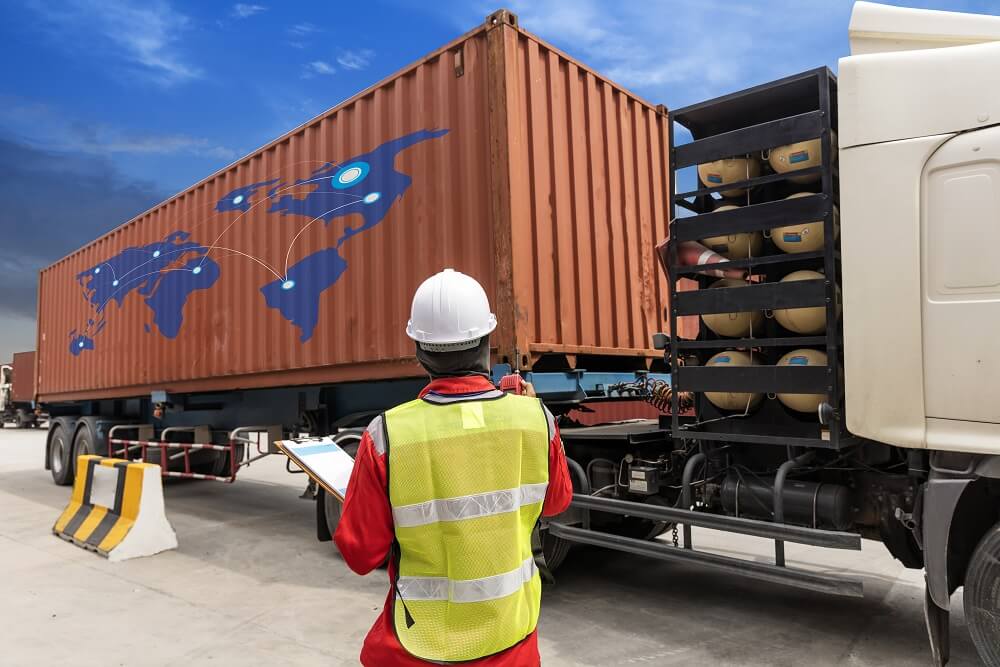
Truck drivers, trucking companies, and third-party cargo loaders are all responsible for not overloading their vehicles. If their failure to follow weight limits led to an accident that injured you, you could hold any – or several – of these parties financially liable for what you suffered. This could include money for your medical bills, any income you lost while you were too hurt to work, and the pain and suffering you experienced.
What Are the Top Causes of Overloaded Truck Accidents?
Overloading a large commercial vehicle is very dangerous, as it can cause accidents related to the following:
- Difficulty maneuvering – Operating a commercial vehicle is already more challenging than operating a small car. If a vehicle’s load is too heavy, a driver may be unable to safely handle it around corners or turns.
- Tire blowouts – Too much weight may cause a truck’s tires to burst. Wrecks can occur when this happens.
- Braking difficulties – Stopping a large commercial truck requires more time than stopping a car. If a truck’s load is heavier than its driver expects, they may not be able to brake in time to avoid a collision.
- Mechanical failure – Excessively heavy loads can place a lot of stress on a commercial vehicle’s parts. A crash can happen due to these parts failing.
Truck drivers are always responsible for operating their vehicles responsibly. However, even a cautious driver may be involved in a crash if someone overloads their truck.
What Are Some Types of Overloaded Truck Accidents?
Overloaded truck accidents can take a range of forms. Examples include:
- Rollovers
- Cargo spilling over and striking other motorists
- Road collapse due to excessive weight
- Rear-end crashes and other brake-failure collisions
- Tire blowout crashes
Virtually all types of overloaded truck accidents may cause serious injury. Truck accident injuries are often severe due to the extreme weight of commercial vehicles.
Are There Federal Regulations for Loading Trucks?
The Federal Highway Administration (FHWA) outlines these federal regulations for the weight that large trucks operating on the Interstate System may carry:
- 20,000 pounds on a single axle
- 34,000 pounds on a tandem axle
However, the truck’s gross weight cannot exceed 80,000 pounds.
There are certain exceptions to these rules for vehicles hauling loads that cannot be easily divided or disassembled. Trucks carrying such loads must still be allowed to carry such items.
The Federal Motor Carrier Safety Administration (FMCSA) also regulates cargo securement. Even if a truck’s load isn’t excessive, a wreck can happen if its cargo is not properly secured.
How Can You Tell If a Truck Is Overloaded?
Motorists can reduce their chances of being involved in wrecks by keeping an eye out for signs of overloaded trucks, such as:
- Sagging – Check the rear of a commercial vehicle on the highway. An excessive load may cause it to sag.
- “Overflowing” cargo – Does a truck’s cargo appear wider or taller than the vehicle itself? If the cargo seems to be overflowing, the truck’s load may be too heavy.
- Bulging tires – A truck’s tires may look abnormally wide when it’s overloaded.
- Poor steering – Truck drivers may struggle to steer their vehicles properly when their loads are too heavy.
Keep your distance from any commercial vehicles that show signs of excessive loads. Consider calling the authorities to report your concerns if you strongly believe a wreck may occur.
How Does a Truck Accident Lawyer Prove an Overloaded Truck Caused the Accident?
Proving your wreck occurred because someone overloaded a truck will likely require an investigation. A truck accident attorney can do this on your behalf by:
- Reviewing documents – Cargo manifests and bills of lading may provide information about a truck’s load. A lawyer could request and review these documents when building your case.
- Interviewing witnesses – Witnesses might provide statements indicating a truck’s load was excessive. Helpful witnesses may include employees of the trucking carrier or the company that loaded the truck.
- Recovering photos and footage – Photos and video of the collision might also serve as evidence a truck’s excessive load caused a wreck.
- Securing police reports – A police report may include details about the weight of a truck’s cargo.
The best way to prove a crash resulted from an overloaded truck can depend on the specifics of a case. An experienced truck accident lawyer will tailor their approach to your unique circumstances.
Who Pays for My Injuries and Damages in a Truck Accident Case?
Any party that is at least partly liable for causing an overloaded truck accident could be partially responsible for your compensation. This could be the driver, if they are an independent contractor, or the trucking company, if it employs the driver or is responsible for loading the truck. These are just a few examples.
When you file a truck accident claim, the liable party’s insurer is responsible for paying you. Be aware that an insurance company is a business. They aim to maximize profits by minimizing payouts. An insurance adjuster who claims to be on your side may actually be trying to settle your case for less money than you deserve. Guard against this with help from a skilled truck accident attorney.
Is There a Time Limit for Filing a Truck Accident Claim?
You must submit your truck accident claim by a deadline to avoid waiving your right to compensation. The deadline varies depending on where a wreck occurred.
For example, under Colorado law, you have three years from the date of a collision to file a truck accident lawsuit. The law grants you two years from the crash to file a claim in Texas.
Contact a Truck Accident Lawyer Today
You deserve compensation if you’ve been hurt because someone overloaded a large commercial vehicle. Filing a truck accident claim can allow you to seek money for your medical bills, lost wages, and more.
The truck accident lawyers with The Wilhite Law Firm can help you navigate this process. Get started today by contacting us for a free case review.






















